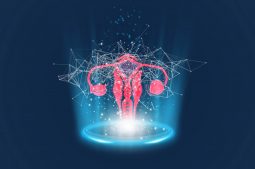
![[:en]Dr. Salazar answers to your questions](https://ivi-fertility.com/wp-content/uploads/sites/12/2015/12/anabelsalazar4828_opt-400x500.jpg)
Dr. Anabel Salazar (@salazaranabel), Málaga’s IVI director, has answered the questions that patients made at a recent meeting via Twitter. In this post we have compiled all the questions and answers so it will be easier for you to have all the information together and less doubts about it.
QUESTION: When is the optimum time each month to try for a baby?
ANSWER: The only time a woman can conceive is during “fertile window” of menstrual cycle, which vary depending on the individual’s cycle. Timing intercourse in the 6 days leading up to and including ovulation is the window with highest chance of conception.
QUESTION: I suffer from PCOS does this mean I am going to struggle to conceive a baby?
ANSWER: Affects 20% women. Great number of them have no problems, others may have problems because they do not ovulate, or have irregular cycles or lack of menstruation.
QUESTION: Does smoking really affect fertility?
ANSWER: Affects sperm count and quality, eggs quality and also offspring health, read this interesting blog entrance
QUESTION: Are there any lifestyle tips or foods we should eat to increase our chances of conceiving?
ANSWER: Take folic acid, do not be overweight, stop smoking, cut alcohol, healthy diet, some exercise, and mostly…do not leave it too late.
QUESTION: How long should I try for a baby before seeking expert help?
ANSWER: After one year of regular unprotected intercourse, no longer than 6 months if >35 years old or you know already about an infertility risk factor http://www.reproductivefacts.org/Defining_Infertility/
QUESTION: How can exercise, or lack of, affect fertility?
ANSWER: There is some evidence that moderate exercise benefits fertility and that high intensity and high frequency exercise may adversely affect fertility.
QUESTION: I’m 42 with a low AMH level, which clinic has the highest success rate for donor IVF?
ANSWER: At IVI assisted reproduction clinics, techniques such as egg donation, give an accumulated pregnancy rate of close to 96% over three attempts. See clinical results from 2014. https://ivi-fertility.com/clinical-results/
QUESTION: I’ve heard there are home sperm banking kits for single mothers. Are they reliable?
ANSWER: Insemination in a clinic increases chances and safety of the procedure. Legalities of the process depends on the country. Read more http://pregnancy.lovetoknow.com/wiki/Home_Artificial_Insemination
QUESTION: Hello! How long does it take on average to get pregnant? Or what’s the average number of treatments people need?
ANSWER: More than 50% get pregnant first IVF attempt, 3-4 cycles lead to 85-90% success rate.
QUESTION: Who decides how many embryos get transferred — the patient or the doctor? 1 or 2 embryos?
ANSWER: Usually it is shared decision making, but it is mandatory 1 embryo for women over 45 years and those with medical contraindications.
QUESTION: Can fertility medication cause anxiety?
ANSWER: Not medical evidence, but process itself may cause higher levels of anxiety which may be cope by patients with the help of medical and psychologist team.
QUESTION: I want to be a single mum. Who decides on the donor and what he should look like?
ANSWER: Depends of the country law, in Spain the clinic will select the most suitable donor according to the female phenotype and immunology.
QUESTION: Is there a link between when you get your first period and your ovarian reserve?
ANSWER: There is no scientific evidence
QUESTION: Is there a greater chance of getting pregnant with multiple embryo transfers?
ANSWER: Not always, in implantation failure patients single embryo transfer may benefit maternal tolerance according to latest immunologist studies.
QUESTION: What does egg freezing involve?
ANSWER: It is a solidification process in which the oocytes are treated with cryoprotective substances and submerged in liquid nitrogen at a temperature of -196°C. Same steps as IVF, ovarian stimulation with hormones, aspiration of them under anaesthesia vaginally, vitrified and stored in liquid nitrogen.
https://ivi-fertility.com/patients/assisted-reproduction-techniques/vitrification-of-oocytes/IVIanswers
QUESTION: What is the optimum age to have your eggs frozen?
ANSWER: Survival figures of up to 97% have been achieved for young patients (
QUESTION: Does egg freezing diminish the quality of the eggs?
ANSWER: Oocyte vitrification is a simple, safe, and efficient option to preserve gametes. Individual chances of oocyte survival depend heavily on women’s age, but it is same success rate as fresh oocytes. Possibilities of having a live birth related to the number of frozen eggs.
QUESTION: How long do eggs last once frozen?
ANSWER: Same procedure as frozen embryos, no scientific evidence that long-term storage decreases quality




2 Comments
Hi my amh is low atray 2 times ivf what can i do
Dear Sara,
We cannot give any medical advice. Please contact us or fill the following form so we can call you.